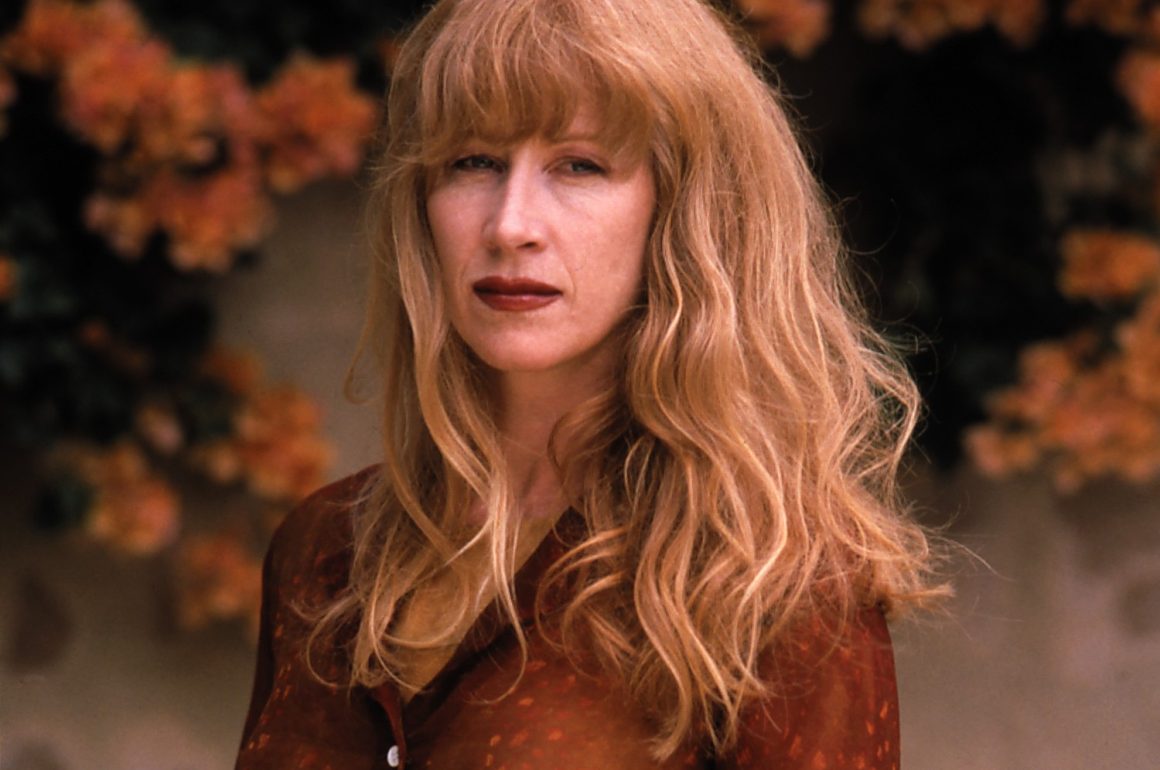
On her stirring new album, Lost Souls, Loreena McKennitt sings achingly of love, loss and layered things, her music as complex and varied as the emotions it carries.
The nine-track recording is an eclectic weave of stories and songs inspired by a myriad of influences, including the works the English Romantic poet John Keats and Ireland’s W.B. Yeats. Celtic and Middle Eastern touches are there as well, cultural and musical traditions that have enchanted the red-haired songstress for more than 30 years.
Her first album of original music since 2006’s The Ancient Muse, and her first studio recording since 2010’s The Wind That Shakes the Barley, Lost Souls was recorded from May to October, 2017, at Catherine North Studios in Hamilton, Ontario, and at Peter Gabriel’s Real World Studios, near Bath, in South West England.
“Life has been so full and demanding the past decade, both personally and professionally,” muses the multi award-winning vocalist and multi-instrumentalist over the phone from her home in Stratford, Ontario, two hours west of Toronto.
“When I returned to the road, life became very busy, so I am very grateful to have gotten back to the creative part of the process over the past year.”
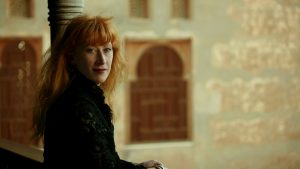
On Lost Souls, she accompanies her soaring soprano with both traditional instruments – harp, piano and accordion – and with other, unique instruments, including nyckelharpa, oud, kanoun, flamenco guitar, and the precision beat and pounding rhythms of a Canadian military band.
It is exactly the sort of rich and textured sonic tapestry that fans have come to expect from McKennitt, whose debut album, Elemental (1985), set an early musical tone that would evolve over the course of two decades and more than a dozen studio and live recordings.
The songstress shares that some of the songs on Lost Souls are recent compositions, while others were pulled from the past.
“Four of the pieces on this album are works that I came to like and held onto until I found a place for them – a process that, in some cases, took many years.”
She describes Lost Souls as a “poesy of songs,” adding that the individual tracks are “like unexpected travelers that appeared on the paths of previous journeys.”
One such song is 100 Wishes; originally written in 1991, the piece is steeped in Celtic and folk influence, and features lyrics taken from some of the world’s most heralded poets.
A more recent number, Breaking of the Sword, was inspired by McKennitt’s participation in Canada’s ceremonies recognizing the 100th anniversary of the Battle of Vimy Ridge.
“I was originally asked to compose a piece for the occasion, but was later asked to play Dante’s Prayer from my 1997 album, The Book of Secrets. I had already started thinking about a new piece, and I was further inspired by the statues I saw at the Vimy Ridge Memorial in France, particularly that of Mother Canada.”
The Mother Canada statue is one of 20 sculptures that portray a young country mourning the loss of its dead.
Written from a grieving mother’s perspective, Breaking of the Sword describes the joy of her son’s birth, and how he grew to work in the fields and stables at home before being called to war.
“Losing a child is unimaginable – that loss and longing is felt the world over; it transcends borders and cultures and time itself.”
As such, the loss in the song resonates beyond the mother to include the community where the young man was raised and the military family with whom he enlisted and fought.
“In a contemporary sense, families of those serving continue to make huge compromises and sacrifices to support their loved ones, regardless of their mission or task – from combat to humanitarian and search and rescue missions, to the demands of daily training and operations. We, as citizens, owe those who serve our immense gratitude and at the very least, the act of remembrance.”
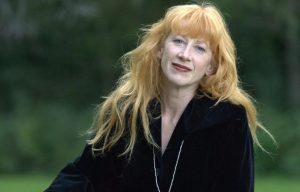
McKennitt, a proud honorary colonel in the Royal Canadian Air Force (435 Transport and Rescue Squadron, Winnipeg, Manitoba) recorded the haunting track with the Central Band of the Canadian Armed Forces, accompanied by the 90-voice Stratford Concert Choir. Fittingly, the song was released in advance of last Remembrance Day.
“I wanted the contributions to the piece to symbolize the circles in which the loss is felt.”
A passionate reader with expansive interests, McKennitt explains that both the new album’s title, and its title song, was inspired by Ronald Wright’s compelling narrative A Short History of Progress.
“He suggests that we as a species may have lost our moral compass with respect to progress, and that we have become lost souls.”
It is an idea that hits home for McKennitt, who often suggests that people unplug from their technology, embrace nature, and enhance their personal relationships.
“The book gave me a tiny taste of the huge swath of history, and an appreciation of the large arc of time.
“It is concerning that, in the past, moral progress was of the greatest concern, but now tactical or strategic progress seems to be a higher priority.”
“I have a real concern that, as a species, we have a propensity to get into progress traps, as we may be now. However, I believe that there is enough metaphorical language in a song like Lost Souls that everyone needn’t be hinged to that concern. People can have different interpretations.”
Her take on the traditional Irish tune, Bonny Portmore (from 1991’s The Visit), is another example of musical metaphor; though the song concerns the loss of a lone tree in Northern Ireland, it also expresses a growing concern for contemporary ecological issues.
McKennitt, who appeared at Carnegie Hall last fall with environmentalist Al Gore and a cast of celebrities in a tribute to Planet Earth, has had a lifelong interest in forestry, wildlife and conservation, and regularly harvests from her own garden. She notes that her “green thumb” is likely rooted in her rural Manitoba upbringing, where her mother was a nurse and her father was a livestock dealer.
“I don’t recall much music in my home as I was growing up. I really only remember my grandmother playing the piano if our parents were away and she was putting us to bed.”
She credits the musical community of nearby Morden with giving her the opportunity to learn, play, compete and perform.
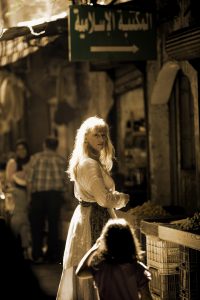
“I started piano lessons at age five and then joined a children’s choir. After that there were festivals and I enjoyed all of it. I was attracted to musical theatre, folk and Celtic music as I encountered it, but certainly not in the way that a youngster on the east coast of Canada might have been immersed in that cultural music tradition.”
In high school, she developed an early appreciation of literature. Later, she enrolled at the University of Manitoba to study agricultural sciences, with a view to becoming a veterinarian. Three months into her courses, she dropped out to pursue her true passion, music.
“I like to say that music chose me. I felt that if I didn’t go with it I might always regret not having taken that chance.”
McKennitt spent four years at Stratford Theatre, playing, acting, composing, and reading to broaden her education.
“When my contract was not renewed I borrowed the money my parents had set aside for my education and made my first recording in a barn studio in Elora, Ontario. I had about 30 cassettes made, and would set out on Friday night from Stratford to Toronto so I could be up early to sell them at the city’s St. Lawrence Market.”
Her musical career grew steadily after she founded Quinlan Road – her own record label and management company – in 1985. She had released three full-length albums by the time she signed with Warner Brothers in 1991. Despite the major-label interest, however, her experiences as an ‘indie’ artist afforded her the business savvy to continue managing her own career.
“I would love to say I knew what I was doing when I decided to be my own manager, but it was more about the process of learning what I did not want to do. It wasn’t the norm for most performers, and I can remember the folks at Warner Brothers in Los Angeles were a little surprised by my resolve to carve out my own career, but they eventually resigned themselves to my decision.”
That decision, she acknowledges, has come at a price.
“It is quite time-consuming. It means that I create less, but I can better take care of what I have created. Actually, I feel that it is a model that most people in the normal world – the world outside of the music industry – can relate to.”
Eschewing the typical trappings of celebrity, McKennitt continues to live and work in the quiet and quaint community of Stratford.
“The music business has changed drastically in my time. I now have an office of five, and being a small, self-contained enterprise has allowed us to remain standing while other deserving artists are not. It concerns me that it is now a much more challenging environment for artists who are just starting their careers.”
Early on, McKennitt felt the pressure to record and release a new album every couple of years.
“It wasn’t until the geography of my career widened that I allowed myself to be guided more creatively.”
While she had been drawn to Celtic music since the late 1970s, and her appreciation of the genre certainly deepened during the 1980s after visiting Ireland and Spain, she points to a 1991 visual arts exhibit in Venice that really opened her eyes to the scope of Celtic history.
“I remember being struck by the realization that these people were much, much more than a collection of anarchists dating back into history. I began to learn about the geographic and historic spread of the Celts, and I was drawn into a rich, ancient tapestry of sounds and rhythms and stories.”
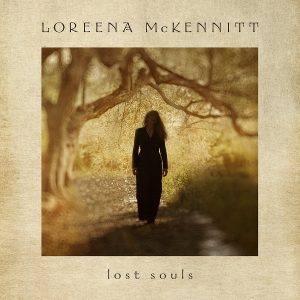 McKennitt notes that her musical journey has been a unique way of exploring her own Irish roots.
McKennitt notes that her musical journey has been a unique way of exploring her own Irish roots.
“There is something very infectious about the process. I think I headed off into history as an act of musical travel.”
“What really intrigued me was discovering myths, stories and practices that mirror each other, yet come from entirely different geographic areas.”
She was also inspired to study formal Irish history.
“It was a piecing together of the puzzle. I began to examine the music and the instruments and arrangements in the context of history, politics and economics to get a broader picture, a better understanding. Music has been the vehicle of my self-education in that it allowed me to explore history and culture in a more academic way. Because of that, I have perhaps been able to stretch the boundaries of traditional Celtic music.”
McKennitt is naturally drawn toward the spiritual, and believes that an open and relaxed mind allows for enhanced creativity. She refers to being ‘visited by ideas’, and loves to wander through new and spacious landscapes in places like Tuscany and Spain with a notebook and recording device. Those experiences eventually become lyrics and melodies.
“Sometimes, the creative process is not unlike the determined trial and error of playing with a Rubik’s Cube.”
Her travels to Africa, the Mediterranean, China, and most recently, India, have enhanced both her world view and her worldly music, strengthening her already-held belief that we are all extensions of each other’s history.
“Wanting to learn about our neighbours is also a desire to learn about ourselves. I have simply chosen the Celts vehicle in which to do this. No doubt I could have chosen another conduit for my music and experienced just as interesting a journey as I have had with Celtic history. But that vehicle has taken me to so many places worldwide, and also down paths and into themes with little Celtic connection whatsoever.”
Interestingly, McKennitt admints that Lost Souls is considerably less Celtic than much of her past works.
“It does not follow the next chapter in my pursuit of the history of the Celts, but I still think that most people will be open to it.
“Given all of the personal and professional demands of the past decade – and the fact that the band will be on the road for 18 months starting this fall – I am just really glad and grateful to have had the opportunity to write, record and release new music.” ~ Story by Rosalie MacEachern




















Leave a Comment